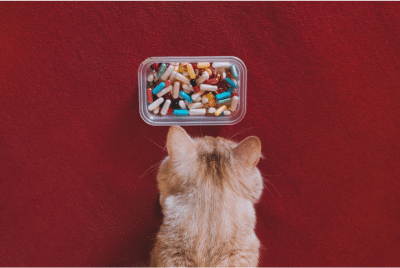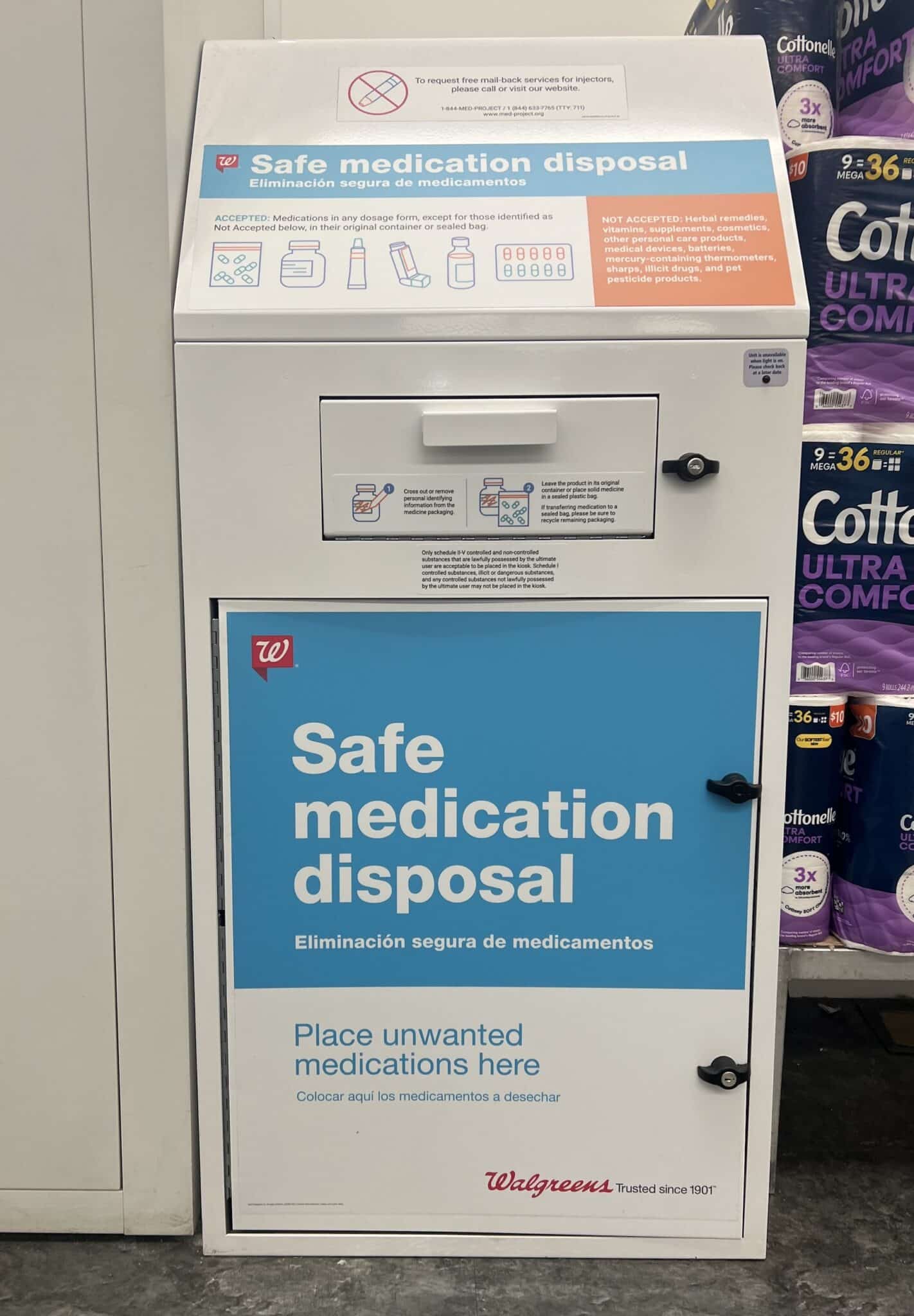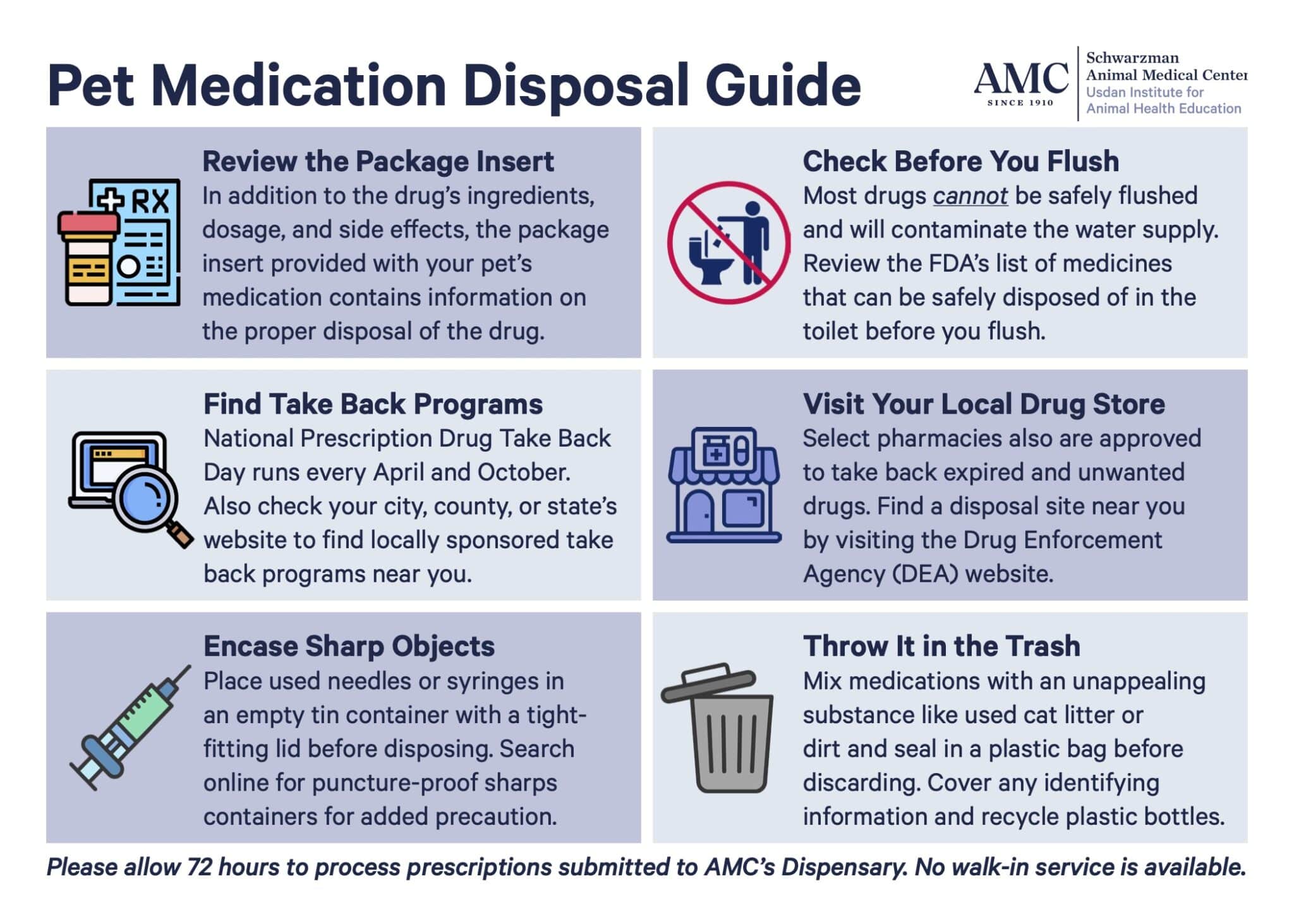How Should I Dispose of My Pet’s Old Medications?

How Should I Dispose of My Pet’s Old Medications?
If you’ve ever had a sick pet, you probably have a cabinet full of unused medications. In fact, I know you do, because my clients often ask if they can give the same pills I prescribed 4 years ago to their sick pet. First, the answer to that question is no. Second, this blogpost will focus on how to properly dispose of your collection of expired drugs and medical supplies.
Don’t Flush Prescription Drugs
For many years, flushing medications down the toilet was the preferred method of disposal. But no more! Flushed drugs end up in our water supply – clearly undesirable. However, the United States Food and Drug Administration has a short list of drugs that can safely be flushed when no other drug disposal option is available. Flushable drugs include opioids because of their immediate risk of abuse and their danger to humans and animals in the home. That means the list of drugs you should not flush is huge. Keep reading to find out what you can do to dispose of unwanted drugs.
DEA Drug Take Back Day
Earlier this year, the United States Drug Enforcement Agency (DEA) has launched a new campaign – Every Day is Take Back Day. There are now 17,000 pharmacies nation-wide approved to take back expired and unwanted drugs. In 2023, the DEA collected more than 1.2 million pounds of unwanted drugs. Use their tool to find a drug disposal site near you.

Disposing of Unwanted Drugs in Trash
If there are no drug take back programs near you and they are not on the “flush list,” your next best option is to mix the unwanted drugs in something nasty such as used coffee grounds or used cat litter. Doing so makes them unappealing and less likely to be inadvertently ingested. Seal them in a plastic bag and put them in the trash. Recycle the plastic pill bottles and paper boxes the medications were dispensed in, but not before you remove the identifying information on the prescription label.
Disposing of “Sharps” and Drug Paraphernalia
Used syringes with attached needles and lancets are also known as “sharps.” If you administer fluids under the skin to your pet with chronic kidney disease, for example, the used needles should be disposed of carefully. An empty tin can with a tight-fitting lid will work in a pinch, but it is better to use a specially made puncture-proof sharps container. These are available online or in your neighborhood drugstore, often near the supplies for patients with diabetes. In New York State, hospitals and nursing homes are required by law to act as collection centers for sharps. You can bring properly packaged and labeled sharps to any hospital or nursing home in New York State but be sure to contact them first for specific drop-off days and times.
Tips for Finding Additional Drug Disposal Resources
- Read the package insert provided with the medication to determine how to dispose of leftover drug.
- Check your city, county or state website as many municipalities sponsor drug take back programs.
- Check the FDA’s website for information on the drug take back programs they sponsor.
- Check your local drug store because many of them have a drug disposal container for their customers.
Pet Medication Disposal Guide
Created by AMC’s Usdan Institute for Animal Health Education


































